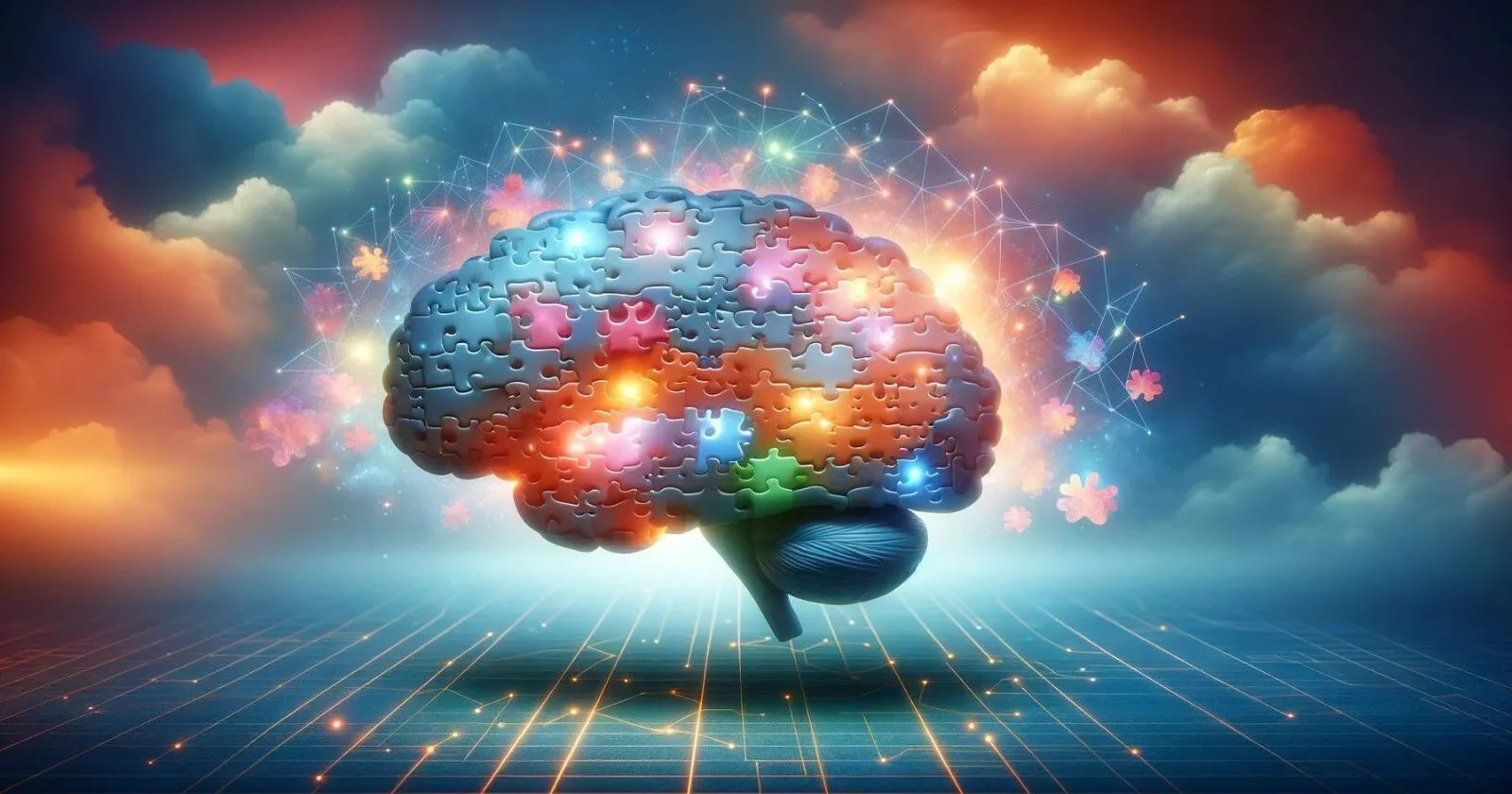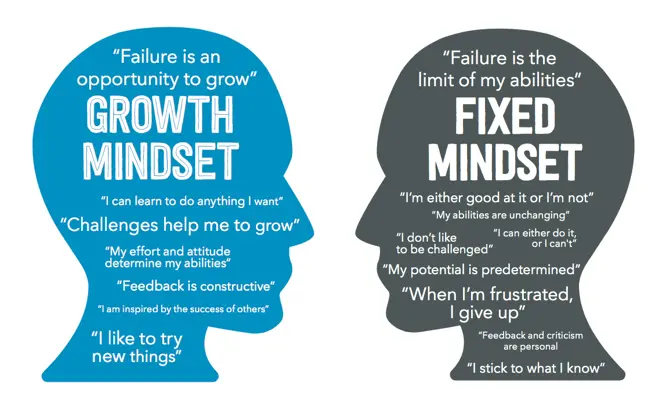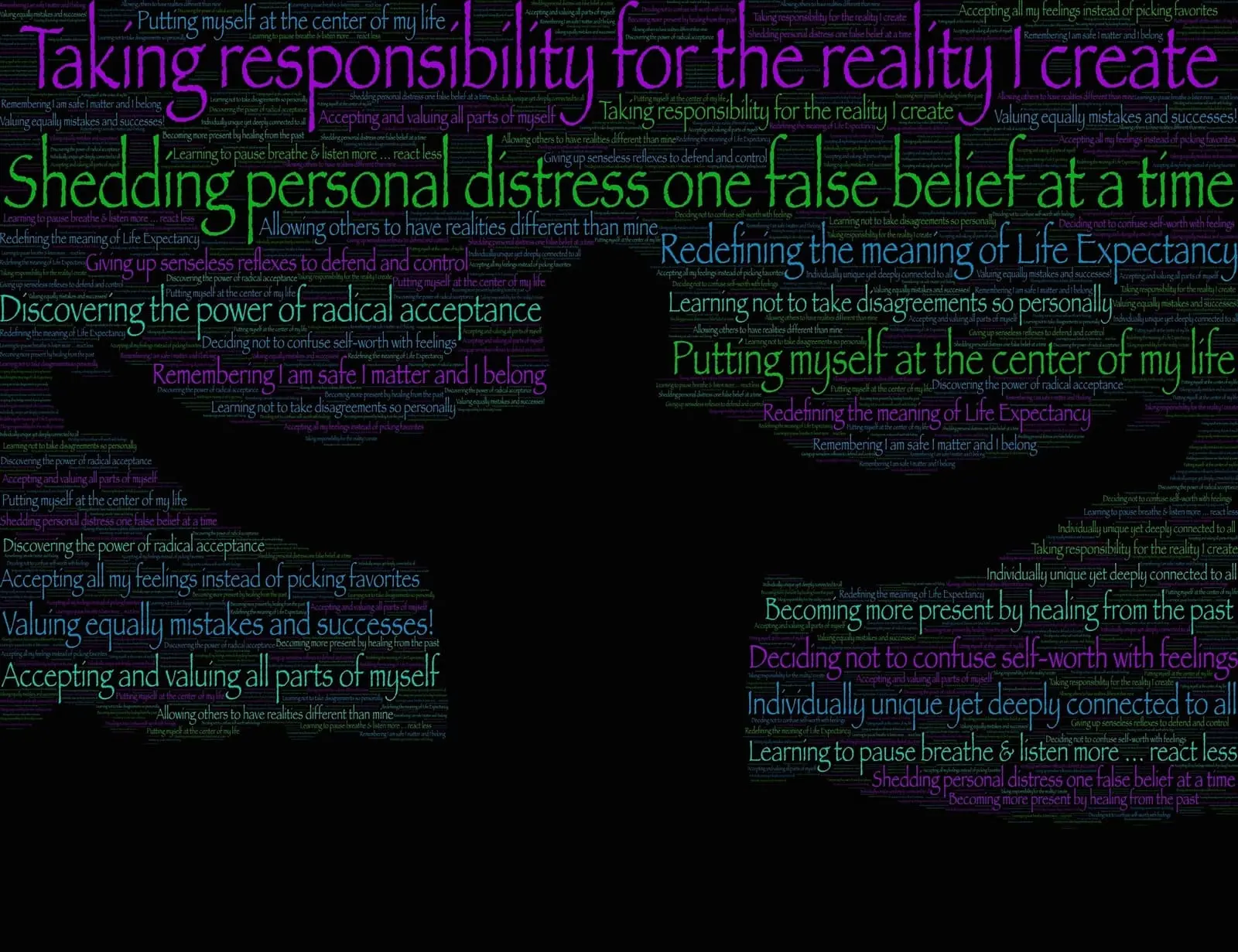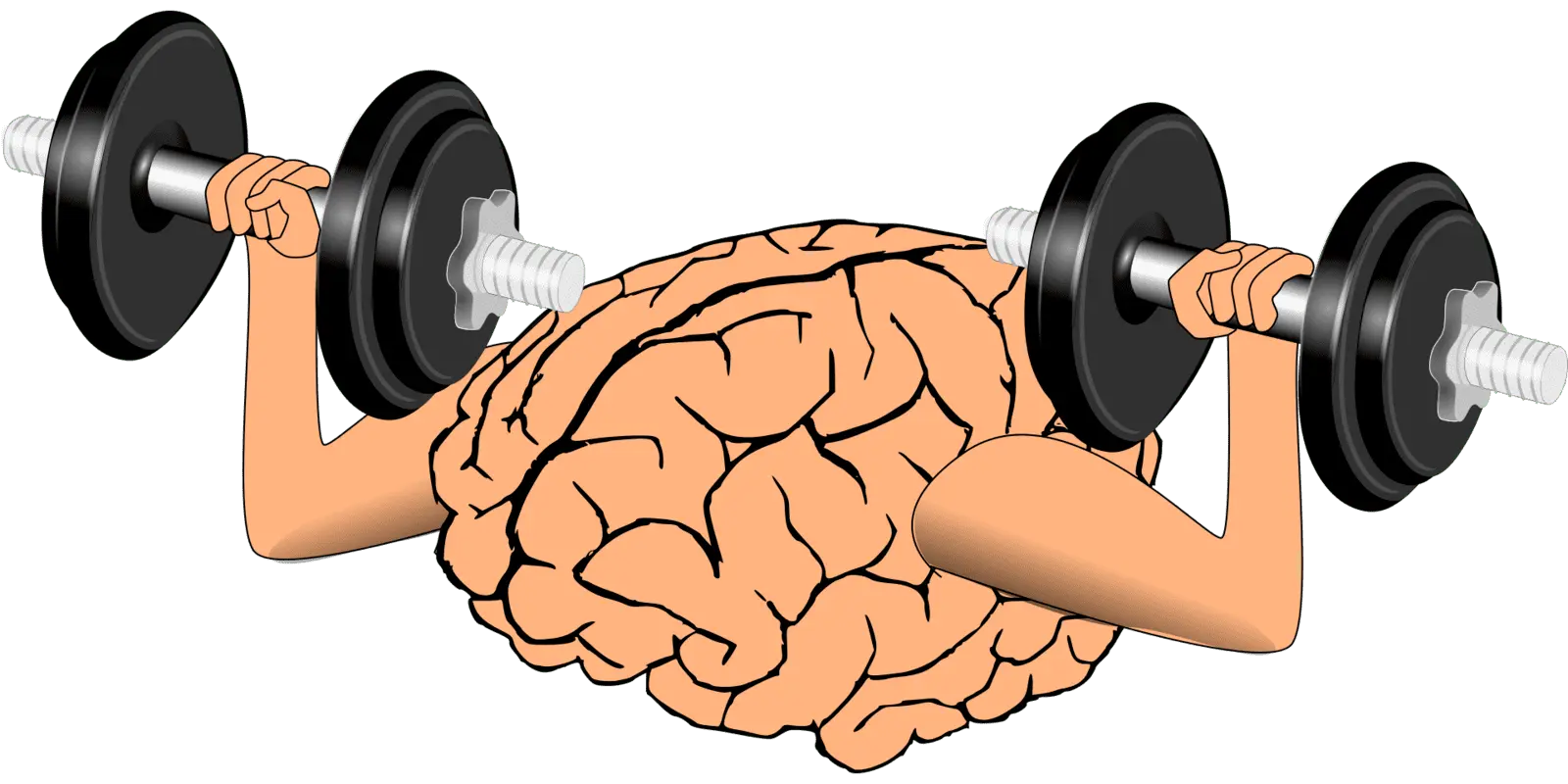Fixed Mindset vs Growth Mindset: Rewire Your Mindset Today!

Fixed mindset vs growth mindset – it’s a simple concept, but the implications are profound. If you have a growth mindset, you believe that your abilities can be developed through hard work, dedication, and courage.
You understand that no one is born perfect – we all have areas we can improve on. You’re not afraid to take risks and push yourself out of your comfort zone because you know that’s how we grow.
On the other hand, if you have a fixed mindset persona, you believe that your abilities are set within the limitations of the mind. You either have the natural ability or you don’t.
You’re not going to waste your time trying to improve, because you don’t believe it’s possible. Fixed vs Growth mindset – which do you have?
Whichever it is, remember that it’s just a belief – it doesn’t have to be true or you can make it true. Beliefs are tools to help us navigate the mind.
If you want to achieve great things in life, adopt a growth mindset and go after your dreams with everything you’ve got!

Fixed Mindset vs Growth Mindset
As I delve into the intricate world of mindsets, it’s enlightening to reflect on Professor Carol S. Dweck’s profound insights from her book Mindset: The New Psychology of Success. Mindsets, as Dweck articulates, are more than mere beliefs; they are the lenses through which we view our abilities and potential.
Here, I’ll share an exploration of the nuanced differences between a growth mindset and a fixed mindset, and how they profoundly impact our behavior, responses, and overall life trajectory.
1. Reacting to Success and Failure
2. Perception of Others’ Opinions
3. Focus on Process vs. Results
4. Understanding the Role of Effort
5. Dealing with Shortcomings
In my journey of understanding mindsets, it’s become clear that while we may exhibit traits of both, consciously choosing a growth mindset can profoundly affect our personal and professional lives.
It’s not about ignoring our limitations but embracing them as part of our ever-evolving self.
As we navigate through successes and failures, the real triumph lies in our attitude toward learning and growing, shaping not just what we achieve but who we become in the process.
Can a Fixed Mindset Be Harmful?
People with a fixed mindset have a mentality in which they believe that their abilities cannot be improved. If you have a fixed mindset, you might avoid new challenges or opportunities because you’re afraid of looking stupid, making a mistake, or failing.
People with fixed traits often seek validation from others instead of striving to learn new things and grow. This kind of thinking can limit your intelligence and talent while preventing you from reaching your full potential.
Many of my clients had a fixed mindset, to begin with, and it was always due to a fear that prevented them from attempting new activities or putting out any effort since they were concerned about being judged.
Needless to say, a growth mindset is essential and the rest is history they are building at the top of the mountain now 🙂
And when obstacles do arise, you give up quickly because you don’t have many references for how humans learn and develop. You believe that putting out effort is a waste of time.
You may also be harboring a secret sense of fear and envy of other people’s success. In the end, in a rigid mindset, you don’t have a chance to grow your abilities.
Develop a Growth Mindset
Each new skill or talent may be nurtured through deliberate practice and effort. This is the belief that underlies a growth mindset. And because of this belief, those with a growth mindset have a passion for learning.
Successful people accept difficulties, and they keep going when obstacles surface during the learning process.
Self-mastery is the ultimate goal for people who have a growth mindset. They view effort as an essential ingredient on the path to mastery.
A growth mindset means you don’t shy away from constructive feedback; they embrace it. And when they see others succeeding on their path to mastery, they find inspiration and lessons to learn for their professional development.
A growth mindset is a key to personal growth and self-realization. A growth mindset person is always looking for ways to build a growth mindset and develop themselves.
When you take responsibility for what goes wrong and learn how to be aware of your thoughts, emotions, and behaviors as they arise to improve them, you move into a positive mindset cycle that leads to personal self-mastery and success.
You have more peak experiences, improved relationships, and greater productivity in your life.
You are also more resilient in the face of setbacks and challenges. You can accomplish anything you set your mind to if you have a growth mindset.
So set your sights high and start reaching for the stars. Remember, there are no limits to what the right mindset can accomplish!
Do You Have a Split Mindset?
People are often surprised to learn that you can have a growth mindset for intelligence but a fixed mindset for your personality, or vice versa.
And in different situations, your mindset can change. For example, if you’re trying to learn a new skill, it’s helpful to have a growth mindset.
This means you believe intelligence is not set in stone but can be developed with deliberate practice. However, if you’re trying to achieve basic qualities, it’s often more effective to have a fixed mindset.
This means believing that your personality traits are who you are and cannot be changed. The important thing is to be aware of your mindset in any given situation and to adjust your thinking accordingly.
With the right mindset, you can achieve anything you set your mind to.
How Can I Change My Mindset?
Your Mindset is your mission control center. It’s the software that will shape our lives. Just like you can upgrade the software on your computer, you can upgrade the software on your mind.
And when you do, it will change your life in ways you never thought possible.
The first step to upgrading your mindset is to understand that mindsets are just underlying belief systems.
Beliefs are just thoughts that you’ve thought over and over again until they become part of your subconscious programming.
The good news is that you can change your beliefs simply by changing the thoughts that you think regularly.
Here’s how it works: Every time you have a thought, it triggers a chemical reaction in your brain. These chemicals then tell your cells what to do.
So if you’re thinking negative thoughts, like “I’m not good enough,” your cells will receive instructions to produce feelings of insecurity and inadequacy.
But if you’re thinking positive thoughts, like “I am worthy and deserving of love and abundance,” your cells will receive instructions to produce feelings of confidence and worthiness.
Over time, these positive or negative thoughts will create neural pathways in your brain that will either help or hinder your ability to achieve success in various areas of your life.
Pay attention to the words you use when you talk to yourself. Replace “I can’t” with “I can”. Your subconscious mind hears what you say and filters it through your personal biases, so choose your words carefully.
Tony Robbins says that understanding the 6 human needs will help you learn how to change your mindset and improve your mental health. The 6 human needs are Certainty, Variety, Significance, Connection, Growth, and Contribution.
Everyone has these needs and they are in constant flux. For example, if you need certainty and you don’t have it, you will seek it out. Or if you have too much certainty, you will seek out variety. It is all about balance.
If you can understand these needs, you can start to rewrite your mindset to get what you want out of life. You can achieve anything you set your mind to! Just remember to choose your words carefully and always believe in yourself.
How Your Mindset is Formed?
Every day, we are bombarded with messages about who we are and what we are capable of. These messages come from the people around us, and they shape our beliefs about ourselves.
Parents and teachers play a particularly important role in shaping our beliefs, through the things they say and the way they treat us.
For example, if a child is praised for being smart, they are more likely to develop a “fixed mindset,” believing that their intelligence is fixed and cannot be changed.
However, if a child is praised for their effort, they are more likely to develop a “growth mindset,” believing that they can always improve with effort.
Similarly, if a child is labeled as “lazy” or “stupid,” they are more likely to internalize those labels and believe them to be true.
The takeaway message is clear: the things we say and do have a powerful impact on the formation of children’s mindsets.
As parents and teachers, it is important to be aware of the messages we are sending to the children in our lives.
As an adult, it is important to understand your current programming to change it.
Can Culture and Environment Promote Fixed Mindset?
Smart or Stupid? A fixed mindset produces a desire to look smart and therefore feel good about ourselves.
The result is that we don’t put in the rewarding effort required to truly learn. We often give up easily, fearing that making mistakes means we aren’t smart.
Children are faced with this with their grades, excelling in sports, and creating the image that suits the parent rather than allowing the development of the child’s inner being.
On the other hand, the growth mindset produces a desire to learn and therefore feel good about ourselves. We understand that making mistakes is essential to learning and taking risks allows us to stretch our abilities.
What Are Ways To Change Your Mindset?
Change your words, change your mindset. When you have a fixed mindset, you see intelligence and ability as static. You believe that you are either born smart or not.
This often leads to a fear of failure, because if you’re not smart, then you’ll never be successful. But here’s the good news: intelligence and ability are not static.
You can increase your intelligence and ability through hard work and self-awareness. So if you want to change your fixed mindset, start by changing the words you use to describe yourself.
Instead of saying “I’m not smart enough,” try saying “I’m willing to put in the work to get smarter.” When you change your words, you’ll change your mindset – and that’s the first step to life-changing progress.
Learn How Your Brain Takes in Information.
When you understand how the brain works, you understand how important it is to exercise it.
Just like a muscle, the more you use it the stronger and denser it becomes. And when it comes to learning, neuroscience tells us that there are three key stages: acquisition, consolidation, and retrieval.
In the first stage, neurons in various parts of the brain begin making new connections. In the second stage, those connections get stronger and myelin (the insulation that protects nerve cells) begins to build up along the axon (the part of the cell that transmits signals to other neurons).
Finally, in the third stage, we’re able to retrieve that information and put it to use. So how can we make sure we’re exercising our brains throughout all three of these stages?
First, by practicing regularly. Second, by breaking down complex tasks into smaller tasks. And third, by setting aside time for reflection and review.
When we do all three of these things, we not only increase our chances of success, but we also actually change the structure of our brains, making us smarter and more capable in the process.
Neuroplasticity Changes Things.
Have you ever wondered why some people seem to be able to accomplish anything they set their mind to while others quickly give up at the first sign of difficulty?
The answer may lie in what neuroscientists call neuroplasticity. Neuroplasticity is the brain’s ability to reorganize itself by forming new neural connections throughout our lives.
This process is driven by our experiences, and it explains why our neural pathways are always changing in response to our environment.
This has major implications for how we think about intelligence and ability. The traditional view of intelligence is that it is fixed – we are born with a certain amount of intelligence and there is nothing we can do to change it.
However, the latest research suggests that intelligence is far more flexible than we thought.
Neuroplasticity explains how we can always learn, improve existing capabilities, and develop new skills, regardless of our age or background.
So next time you find yourself facing a challenge, remember that your brain has the power to change and adapt. With enough effort and perseverance, you can overcome any barrier.

Steps To Change Your Mindset
The first step in transforming your attitude is self-awareness. You must be able to identify the circumstances that induce a fixed mentality and observe when you’re slipping into it to alter your thinking.
Once you become aware of the times when you tend to think in a fixed mindset, you can start to catch yourself and change your thinking.
However, this is only the first step. To truly change your mindset, you also need to adopt a growth mindset by believing in your ability to learn and grow.
With a growth mindset, you view setbacks as opportunities to learn and improve. When you combine self-awareness with a growth mindset, you create the perfect conditions for positive change.
Listen to The Voice in Your Head, It Speaks to You!
The inner saboteur is an all-too-familiar character in every life and business coach’s playbook. It’s the naysayer inside our heads that negatively influences much of what we do; the critical voice that judges us and our work.
Using mindfulness you can train your mind to listen with anticipation and advanced awareness of what the fixed mindset is going to say. After that, simply listen for it on the inside.
When you hear the voice say things like, “Are you sure you can do it?” or “What if you don’t succeed?” know that these are just fears trying to hold you back.
Remind yourself that you are capable. You can handle whatever comes your way.
If the voice says, “It’s not my fault,” take responsibility anyway. It doesn’t matter whose fault it is. What matters is that you take action and do something about it.
The same goes for when the voice says, “Who do they think they are?” Let go of needing to be right and focus on finding a solution.
The bottom line is this: don’t let your inner saboteur hold you back from living your best life. Be aware of the fixed mindset voice inside your head, and don’t believe everything it says. Instead, challenge it, I promise whatever the mind is saying, it is wrong!
Use Self-Awareness To Choose.
When you encounter challenges, setbacks, or criticism, how do you interpret them?
Do you see them as a sign that you have limited options? Or, do you see them as a sign that you need to challenge yourself, step up your effort, change your strategies, and continue to develop?
The former interpretation is the fixed mindset; the latter is oriented toward growth. And the key here is to shift out of the framework of judgment (fixed) and into the arena of growth.
When you’re in a growth mindset, challenges, setbacks, and criticism are seen as opportunities for learning and development.
They’re not personal attacks or evidence of your inadequacy; they’re simply information that can be used to help you improve.
So, if you want to achieve success in any area of your life, it’s important to learn how to interpret these experiences in a way that supports your growth.
Otherwise, you’ll be stuck in the fixed mindset trap of seeing every challenge as an indication that you’re not good enough. But when you embrace a growth mindset, you’ll realize that challenges are simply part of the journey toward excellence.
Talk Back To Yourself With A Growth Mindset.
When you talk to yourself, what do you say? If you’re like most people, you’re probably your own worst critic.
You focus on your flaws and shortcomings, beat yourself up for your mistakes, and compare yourself unfavorably to others.
This negative self-talk can become a self-fulfilling prophecy, leading you to believe that you’re not good enough and that you’ll never reach your full potential.
The good news is that you have the power to change the way you talk to yourself. By replacing negative self-talk with positive, affirming statements, you can begin to rewrite your mindset from one of scarcity to one of abundance.
When you talk to yourself with a growth mindset, you recognize that nothing about you is fixed but rather everything is fluid and in motion, moving, and changing.
You view setbacks as opportunities to learn and grow, instead of evidence of your failings. And you see failure as a necessary step on the road to success.
With a growth mindset, anything is possible. So start talking to yourself with kindness, respect, and compassion today. It’s time to start believing in yourself!
Take Action on Your Growth Mindset.
The difference between people who achieve their dreams and those who don’t is simple: taking massive, decisive action. It’s not enough to have the desire or even set goals.
You have to take the necessary steps that will lead to growth. That might mean getting out of your comfort zone, making tough choices, or working harder than you ever thought possible.
But if you’re willing to do whatever it takes, you will see, that the universe is truly limitless. So ask yourself: what are you willing to do to make your dreams a reality?
It’s time to take massive action and create the life you’ve always wanted. Are you ready? Let’s go!
Change Things Up if You Need To.
So the growth mindset isn’t just about trying harder and harder, banging your head against a wall until the wall gives. Instead, it’s about working smarter.
It challenges us to seek out proven strategies and test them for ourselves. When we have a growth mindset, we know how important our awareness is to the outcome of our current experience.
We don’t give up easily, because we have faith and trust in ourselves. We also embrace challenges and the unknown, we know we cannot fail because failing only fuels a growth mentality.
When we encounter setbacks, we don’t see them as evidence of our lack of ability; instead, we view them as an opportunity to learn and improve. Even in a growth mindset you can form a strategy and change it if you need to.
You can always switch up your approach until you find something that works better for you. You’re not married to any one way of doing things.
So if you’re not seeing the results you want, don’t give up. Change things up and keep moving forward. Remember, a growth mindset is all about learning, improving, and growing. And that’s a journey that never ends.
Common Myths About Mindsets
Myth 1: Talent is Only Born, Not Made Many believe you’re either born with talent or you’re not. This is a misconception. Talent can indeed be nurtured. With dedication and practice, anyone can enhance their skills and abilities. Think of it like a muscle that grows stronger the more you work it out.
Myth 2: Failure Equals Lack of Intelligence It’s a myth that failure is a direct reflection of intelligence. In reality, failure is a stepping stone to success. It’s an opportunity to learn and grow, not a final verdict on your capabilities. Embrace your failures as chances to evolve.
Myth 3: Fixed Mindsets Lack of Motivation for Improvement People with a fixed mindset are often thought to be uninterested in learning or improving. This isn’t always true. They might desire to learn but believe their abilities are limited. Recognizing that skills can be developed can ignite the motivation to strive further.
The Science Behind Mindset Development
Neuroplasticity: The Brain’s Flexibility Our brains are not static; they are capable of change and adaptation, a concept known as neuroplasticity. When we challenge ourselves, our brain forms new connections, enhancing our ability to learn and grow. This scientific insight underscores the power of a growth mindset.
Practical Strategies for Cultivating a Growth Mindset
Embracing Challenges View challenges as opportunities for growth. Each difficult situation is a chance to expand your horizons and learn something new.
Learning from Failure See failure as a teacher, not as a judge. Reflect on what didn’t work and how you can adapt your approach in the future.
Seeking Feedback Welcome constructive criticism. Feedback is a valuable tool for improvement, helping you see what adjustments are necessary for your growth.
Pros and Cons of Different Mindsets
Pros of a Growth Mindset
Cons of a Growth Mindset
Pros of a Fixed Mindset
Cons of a Fixed Mindset
Navigating the Path to a Growth Mindset
Embracing a growth mindset is akin to embarking on a transformative voyage. It’s not about swiftly arriving at a final goal but rather evolving through the journey itself. This shift calls for a new viewpoint, one that embraces challenges as opportunities for self-discovery and growth.
Think of it as stepping into uncharted territory. The growth path often lies beyond our comfort zones, in spaces where we dare to test our limits and try new approaches. Begin with small, manageable steps, recognizing and celebrating each bit of progress along the way.
Be kind and patient with yourself; personal evolution is a gradual process. Each incremental achievement, no matter how minor it may seem, is a crucial part of your journey toward embracing a growth mindset. Remember, the true essence of growth lies in the journey, not just the destination.
Final Takeaway on Fixed Mindset vs Growth Mindset!
If you want to change your life for the better, it’s time to start thinking differently.
The growth mindset is all about embracing change, learning from your mistakes, and continuing to move forward. If you’re ready to start making progress and reaching your goals, it’s time to start working with a coach.
Coach Vishnu Ra can help you change your mindset and start taking action toward your goals. Schedule a free 30-minute call with him today, and let him help you get started on the road to success. You deserve it!







